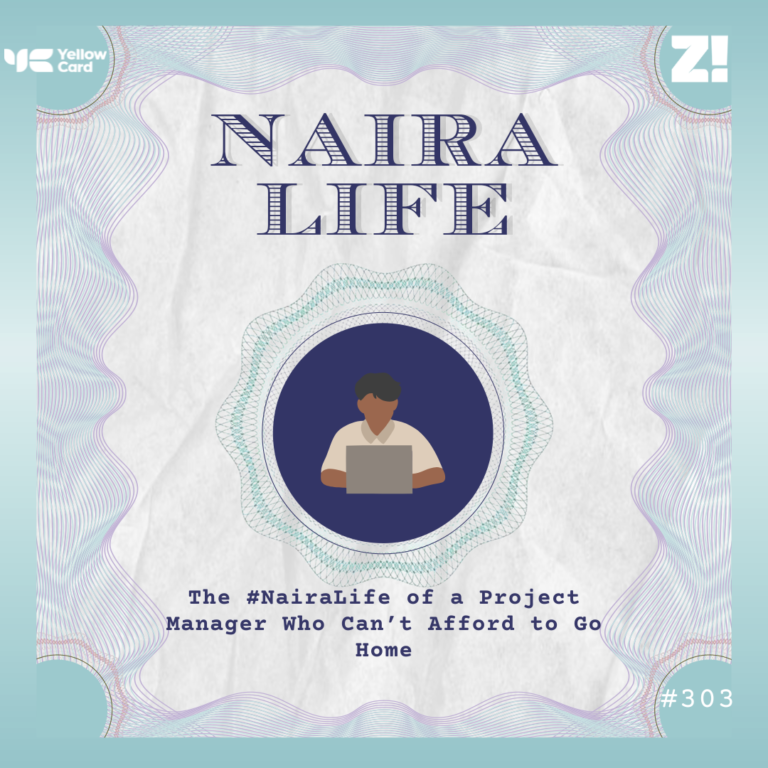Toyosi (29) travelled to India to study nursing in 2015 and achieved her lifelong dream of working in a hospital.
Nine years later, she’s a practising nurse, but she now wishes she never got into the profession.
As told to Boluwatife
Image by Freepik
I knew I wanted to work in healthcare since I was 10. Not because of any particular passion for saving lives, though. My reason was far more simplistic.
I suffered severe asthma growing up, and the hospital was my second home. My mum didn’t want me using inhalers because of the stigma, so I used tablets instead. That didn’t always work, and coupled with my playful nature, I was almost always guaranteed to land at the hospital at least twice a week. But I didn’t mind; I loved seeing the doctors and nurses and wanted to be like them.
Inevitably, I began pursuing university admission to study medicine immediately after I finished secondary school in 2011. But it wasn’t as straightforward as I hoped.
If it wasn’t JAMB “jamming” me, it was the school doing its own. I even picked a JUPEB exam form in 2011 so I could gain admission via direct entry to the second year. But somehow, the results came out, and my name got mixed up with someone else’s. There was nothing I could do. I can’t remember exactly how much my parents spent on the form, but I know it was expensive.
In 2014, I finally got admitted to a federal university, but for a degree in nutrition and dietetics rather than the medicine I wanted. I accepted the admission, but my heart was still set on medicine. I also wrote nursing school exams. I just wanted to work in the hospital.
So, when I got the opportunity to move to India to study nursing in 2015, I grabbed it with both hands.
I was 20, in a new country with no family or friends nearby. When I first got to India, I lived with my travel agent’s girlfriend for a month before my mum paid for my apartment.
It took some time for me to adapt to India; the many masalas, the hundreds of stray dogs on the streets who barked all night, and nursing school. Nursing school was difficult.
To be fair, nursing school is difficult all around the world, but I had a language barrier to overcome. The tutors taught in English, but they often switched to Hindi to help local students understand better, and it always annoyed me.
The language barrier also impacted my practical experience. I mainly worked in the intensive care (ICU), surgical, and obstetrics and gynaecology units, as they guaranteed minimal interaction with the local Indian patients.
But I still learned a lot. The few times I interacted with patients, they were more than excited to talk to me and touch me— even though Indians are also dark-skinned. My hair fascinated them, and I was this phenomenon they didn’t understand.
I graduated from nursing school in 2020 but couldn’t practise in India. For some reason, they didn’t license international students, so I couldn’t get a proper job there. I had to return to Nigeria.
In Nigeria, foreign-trained nurses must register with the nursing council, take a six-month adaptation course, write the nursing council exams, and intern at a teaching hospital for one year before finally getting a nursing license. The process takes about two years.
I went through hell during those two years of processing my license. First, there was the discrimination. I took the adaptation course at a federal university, and they made it clear I wasn’t like them. I wasn’t “their student”, so I shouldn’t expect any special treatment.
The internship experience wasn’t better. Once I mentioned I trained in India, the other doctors and nurses would go, “Ehen, you that even went outside to study, shebi you’re still here with us.” I even started claiming I trained in Nigeria, but they almost always found out after I couldn’t answer questions about the institution I claimed to attend.
Aside from the discrimination, I quickly realised that practising nursing in Nigeria was much different. There’s so much improvisation here. In India, I use a tourniquet to set an IV line or collect blood. I’ve never seen that in Nigeria. I have to cut a drip set to tie on the patient’s hand. I’ve also spoken to a nurse who’d never seen a defibrillator in her life.
There’s also crazy politics in the medical space here — a kind of “Don’t do my work” vibe. In India, I was taught autonomy. If the patient needed urgent care before the doctor arrived, I could attend to that.
However, during my internship in Nigeria, I witnessed a patient die after going into cardiac arrest because the doctor wasn’t around, and the head nurse insisted it was the doctor’s job to resuscitate the patient. The nurses couldn’t even give first aid. I’m still in shock.
I finally got my Nigerian nursing license in 2022 and got a job at a private hospital for ₦50k/month. I did that for a year and moved to where I currently work as an ICU nurse, even though the salary isn’t that much better at ₦150k.
I wasn’t prepared for how low nurses earn in Nigeria, especially considering the sheer physical stress my new job brought with it. The mental stress, too? I almost lost my mind.
It wasn’t that I’d never experienced a patient’s death before. While schooling in India, I once lost a patient after feeding him through a nasogastric tube. The patient was already dying, so I didn’t do anything wrong, but I still felt terrible. A senior colleague had to intervene and convince me that his death wasn’t my fault.
While also working in the ICU unit in India, I witnessed several deaths, and I learnt to detach myself. In fact, during my third year in school, a fellow student and I once exhaustedly fell asleep on a bed that’d just held a dead patient a few minutes ago. So, I thought I had emotional detachment on lock.
However, my mental health started to suffer after I started my current job at the intensive care unit (ICU). The ICU, as the name implies, cares for badly injured patients — people on the verge of death. Once these patients become stable, they get transferred to other units.
In my first month on the job, no one was transferred out of the ICU. It was just death. I’d see a patient today, and they’d be dead by my next shift. These were people my age and even younger than me. Maybe it was because it’d been a while since I worked in the ICU, but the deaths began to affect me. I started having wild heart palpitations. A normal heart rate should be 60 – 100 beats per minute. Mine was regularly above 130.
I did every test in the book — ECG, heart echo tests, hormonal tests, everything. Every doctor I saw told me there was nothing physically wrong with me. I didn’t understand until a doctor colleague at work told me I was suffering from severe anxiety, and it was common among nurses.
He advised me to stay calm and try to reduce my attachment to patients because deaths would always happen. He was right. Most people don’t know that nurses also pass through the five stages of grief. I don’t have to be extra close to a patient before their death affects me.
I recently lost a patient who was hit by a car as he crossed the road to return home from work. He was just 30, and he had a family. For some time after that, I was scared to leave work for home because what if I also got into an accident? Still, I had to put my fear aside and show up for my patients.
It’s easy to say nurses are wicked and unemotional, but we’re also trying to stay sane. The suffering and death get to me, but I can’t put it on my face because I have a job to do. Sometimes, patients come fully ready to be unkind because of what they’ve heard about nurses, but I have emotions, too.
At 10 years old, I thought my dream was to work in the hospital. I achieved that dream, but if I had the chance to rewind time, I’d never do it again. I’d have stuck with the nutrition and dietetics I got, or even pharmacy or physiotherapy. The anxiety and trauma I go through daily isn’t worth it at all.
NEXT READ: I Relocated for My Children’s Future, but I Fear They Resent Me




